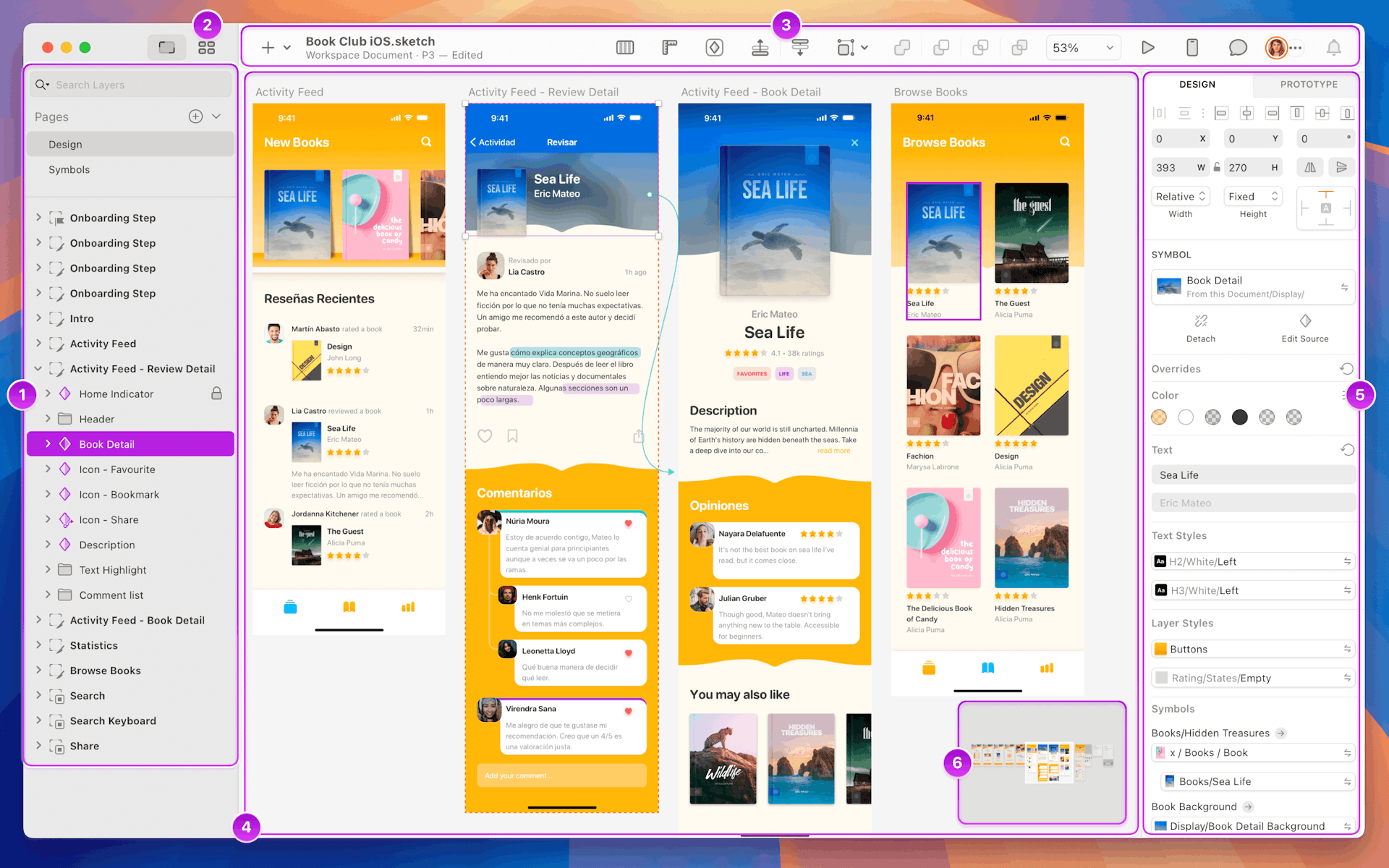Look, let's be honest: Figma owns the design tool market now.
Some design survey shows Figma owns 77% of the market now. But Sketch isn't dead, and here's why it might still make sense for your team.
The Performance Reality
If you've ever tried to work with 50+ artboards in Figma, you know it turns into molasses. Sketch handles massive files without breaking a sweat because it's native Mac code, not JavaScript running in a browser. I've pushed 400+ screens in a single Sketch file without the spinner of death that haunts Figma users.


The downside?
Your Windows teammates are screwed. They can view stuff in the web app, but they can't actually design.
This kills most teams before they start.
The Mac-Only Problem
This is Sketch's biggest weakness and they know it. While Figma works everywhere, Sketch bet everything on Mac performance. Great if you're a Mac-only shop (rare), nightmare if you're not (everyone else).
The "solution" is the web app that feels like an afterthought.
It's functional for commenting and grabbing assets, but your Windows devs will hate the clunky interface compared to the native Mac app. They can't contribute to actual design work.
What Sketch Gets Right
Symbols vs Components: Sketch's Symbol system is more mature than Figma's components.
Overrides work more predictably, and nested symbols don't shit the bed as often.
File Organization: The native app handles file management better.
No cloud dependency means you're not screwed when their servers go down. Your files live on your machine, period.
Speed: Everything happens instantly.
Switching between artboards, applying styles, duplicating elements
- it's all immediate. Figma's lag adds up over 8-hour design sessions.
Plugin Ecosystem: The plugin directory is solid. Craft, Stark for accessibility, Abstract integration
- most important plugins are there and work reliably.
Check out Runner for faster navigation and the Anima plugin for prototyping.
What Makes Teams Choose Figma Instead
Real Collaboration: Figma lets multiple people design at once without everything breaking.
Sketch's collaboration is mostly "one person designs, others comment."
Platform Agnostic: Works the same on Mac, Windows, Linux, ChromeOS.
Your whole team uses the same app with the same features.
Free Tier: Figma's free plan is genuinely useful.
Sketch is $12/month per editor (or $120/year) minimum, no exceptions.
Version Control: Built-in branching and merging.
Sketch requires third-party tools like Abstract for proper version control.
The Honest Assessment
Choose Sketch if:
- Your team is 100% Mac users
- File performance matters more than real-time collaboration
- You're already invested in Mac-based design workflows
- You need mature Symbol system features
Choose Figma if:
- You have any Windows users (which is everyone)
- Real-time collaboration is essential
- You want one tool that works everywhere
- Budget is tight (free tier)
Sketch isn't dying, but it's become a niche tool for Mac-heavy teams who prioritize performance over collaboration.
That's a smaller market than it used to be.
Recent Updates That Don't Change the Math
The latest Sketch 2025.2.2 (September 2025) brought performance improvements and bug fixes, with the 2025.2 Barcelona update adding glass effects and better prototyping.
Nice features, but they don't solve the fundamental Windows problem. Check out Sketch's roadmap for upcoming features and their system requirements for compatibility.
Their new Smart Animate is Sketch's answer to Figma's prototyping, about 3 years late.
It works fine but doesn't give you a reason to switch from Figma. For performance comparisons, see the design tool benchmark study.
Anyway, here's what Sketch actually does beyond the marketing bullshit.


